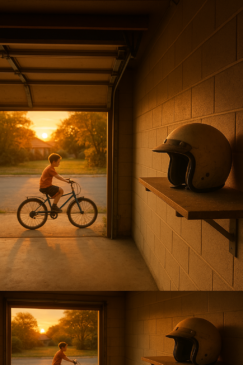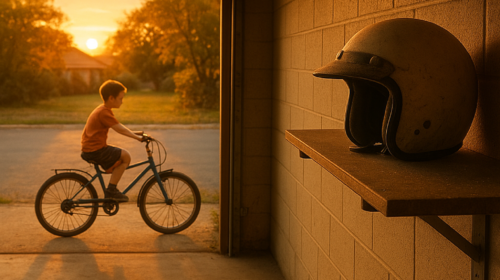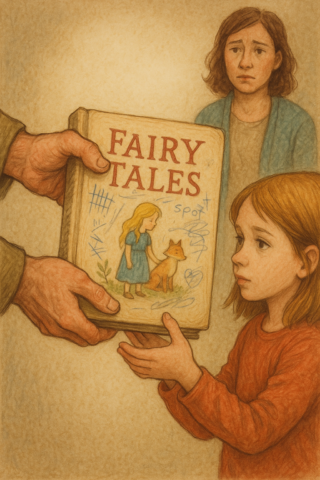Some childhood treasures are more than just objects; they’re time capsules filled with memories, hopes, and the echoes of growing up. For Ben Lawson, his beloved childhood bike was more than a set of wheels—it was a symbol of freedom and a link to his past. So when his recently divorced father, hoping to blend his new life with a new family, decided to give that bike away to someone else, Ben was forced to confront not only his loss, but also the complex web of feelings that come with change, moving on, and family loyalty.
A Boy and His Bike
As a kid in the suburbs of Cincinnati, Ben’s world revolved around his blue Schwinn. Every summer, that bike took him everywhere: up and down tree-lined streets, to his best friend’s house, and to the corner store for ice cream. It survived scraped knees, racing competitions, and the occasional DIY upgrade—Ben’s initials were still faintly carved into the handlebars.
When Ben left for college, his parents divorced. He packed his dorm with the essentials, leaving his childhood room—and the bike—at his dad’s house, assuming it would be there for summer visits or, at the very least, as a keepsake.
A New Chapter, An Unexpected Loss
A year later, Ben returned home for spring break. His father, Mark, was dating someone new—a kind woman named Denise who had a young son, Tyler. Mark seemed happier than Ben had seen him in years, eager to show off the changes around the house.

As Ben settled into his old room, he glanced into the garage and noticed the empty spot where his bike had always stood. “Hey Dad, where’s my bike?” he asked casually.
Mark paused. “Oh, right! I gave it to Tyler. He didn’t have one, and I thought he’d love it as much as you did.”
The words hit Ben like a punch to the gut. His childhood bike—the one filled with a thousand memories—was gone, handed over without a second thought.
The Difficult Conversation
Ben tried to play it cool during dinner, but inside, he was boiling with hurt and frustration. He wondered: was he being selfish? After all, it was just a bike. But later, when he saw Tyler gleefully riding up and down the driveway, Ben couldn’t shake the sense of loss.
That evening, Ben found the courage to talk to his dad. “I wish you’d asked me before giving away my bike. It wasn’t just an old thing in the garage—it meant a lot to me.”
Mark looked genuinely surprised. “I’m sorry, Ben. I didn’t realize it was that important. You hadn’t ridden it in years, and Tyler needed it. I thought you’d be okay with it.”
Ben nodded, understanding but still hurt. “I get it, but sometimes the things we leave behind aren’t forgotten. They’re just waiting for us to come home.”
Moving On—But Not Forgetting
The rest of the visit was bittersweet. Ben watched Tyler make new memories on the bike, popping wheelies and racing down the sidewalk. It was clear the bike was loved—but it was no longer his.
On his last night home, Ben rummaged through his old closet and found a faded photo of himself at age ten, grinning on his Schwinn. He took it back to college as a memento, a small way to hold onto the past.
Ben realized that families change, objects come and go, but memories are yours to keep. It hurt to lose his bike, but he saw how it brought joy to someone else. Maybe that’s what growing up is: letting go, even when it’s hard, and understanding that love can be shared—even through loss.
Lessons in Letting Go
Ben’s story is one that resonates with anyone who’s ever lost something meaningful—especially to the complicated messiness of blending families. He’s learned that it’s okay to mourn those losses and to speak up about your feelings, even when you’re not sure they’ll be understood.
He and his dad are closer now, having navigated the rocky terrain of honest conversation. And while Ben still misses his bike, he’s proud to know that a new generation is creating memories with it—just as he once did.
Final Thought:
Growing up means learning to let go, but it also means knowing when to hold on to what matters. Speak up for what you cherish, and remember: sometimes the best memories live not in objects, but in the stories we carry with us.



